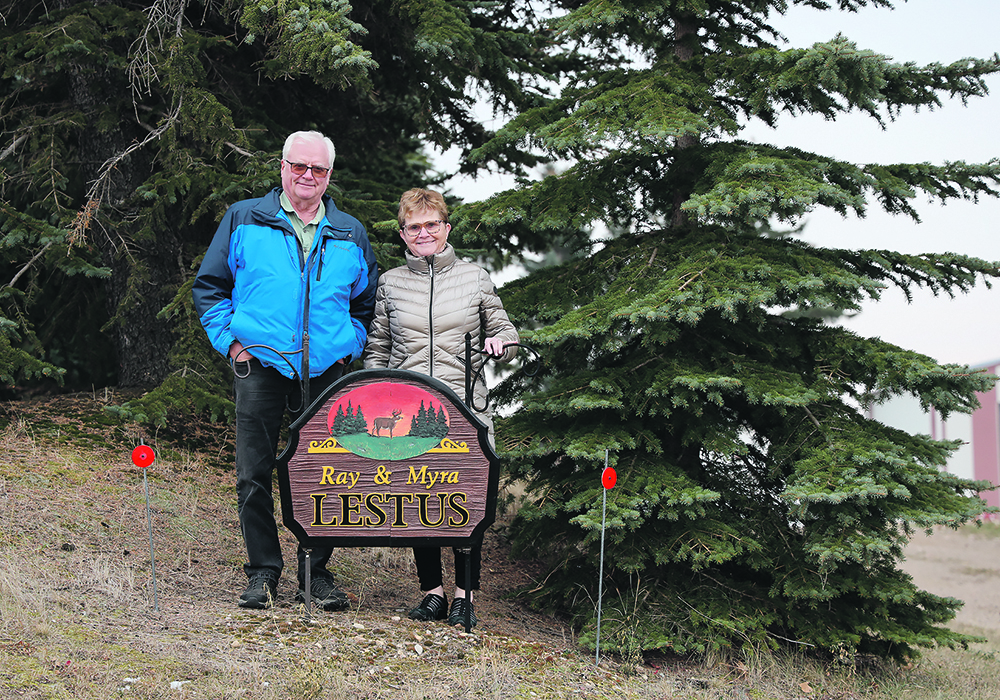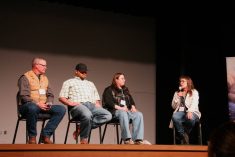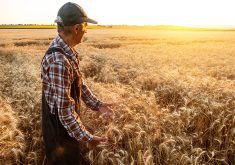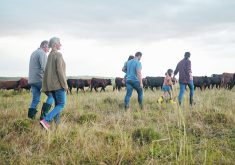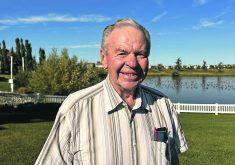STROME, Alta. — It wasn’t until Ray Lestus grew his last crop and sold his farm machinery that he realized how much anxiety he felt when he was farming.
“The worries. You don’t realize how much you worry about everything,” said Letus.
In the last few years, it was his job to race around fields hauling the grain away from the two combines. He worried if he made the right marketing decisions and he worried about the weather.
Thirteen years after retiring at 62, Ray and his wife, Myra, have no regrets. He even turned down offers to work at a local agronomy dealership, or combine and seed for neighbours when they heard he no longer farmed.
“I decided to walk away from all of that.”
The couple sold four quarters of land and kept two quarters, but they gave up any farm accounting status to completely sever their farming ties.
While they don’t know if it was the right thing to do financially, they look at other farm families, when another generation joins the farm, and the older generation seems forever connected to the farm, whether they want to be or not. Neither of their two children wanted to take over the farm.
Myra said she enjoyed the farm, especially during harvest when she would drive the combine and feel the excitement of bringing in the crop. That excitement waned when they no longer swathed the crop and she had to gauge the depth with a straight-cut header.
“At night I couldn’t see the ground.”
Without Myra on the combine, finding harvest help was not easy and helped solidify the decision to quit farming.
Ray had two retirements. He also retired from the oilfield in 1989 to farm full time and look after the children while Myra went to work full time at the nearby Viking, Alta., hospital.
While farming and working off farm for years, Ray realized he no longer wanted to be away from his family on a northern oil rig. Each year as harvest drew to a close he would begin to dread the time away from his family.
“I hated this season. I didn’t look forward to going back on the rigs. Now you’re going to be away for three weeks at a time in the cold up north,” he said.
The couple never planned on farming. After they married, they moved a mobile home to his parent’s Strome farmyard, while Ray continued to work in the oilfield.

Once they moved home, it seemed like farming was a natural transition. We had no intention of farming They slowly took over the farm from his parents while working off the farm.
“The oil money supported the farm.”
But after Ray retired from the oilfield and Myra took a job at the hospital, Ray became involved in the local community, learned to cook and play guitar.
“I started learning one song and then another song. I gained experience and practised and started to play. I did that for several years before I got brave enough to play in public.”
Now he plays at eight different senior facilities in Viking, Daysland and Camrose. A recreation co-ordinator heard Ray sing and encouraged him to sing at a lodge and he now has about 100 songs in his repertoire.
“As time went on, I gained more confidence and tried new places and am now at eight places.”
The couple said it is easy to become a couch potato and watch television after retirement, but it’s important to get out and socialize and push your boundaries. This winter when they travel to Arizona, Myra wants Ray to play his guitar at an open mic session in their winter community.
“If you never go out, you don’t know what you’re missing,” he said.



